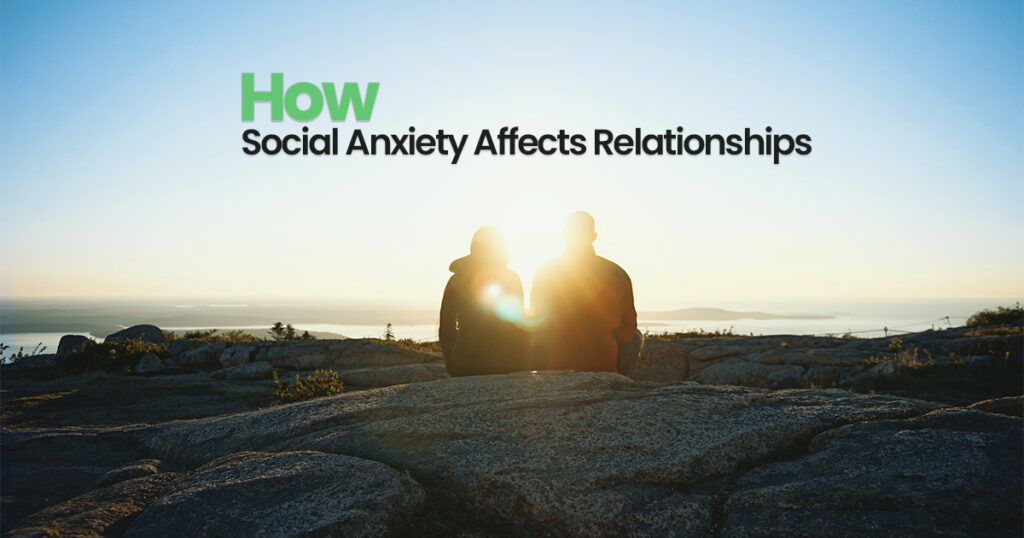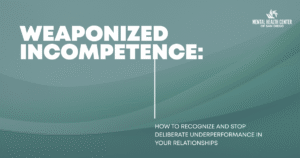Social anxiety is often described as an extreme fear of communicating and interacting with others. Those who suffer from this anxiety disorder generally experience great difficulty building genuine connections with those around them. This article will discuss what anxiety looks like, how social anxiety affects relationships, and when anxiety becomes a problem in relationships.
Social Anxiety Disorder Symptoms
How do we identify social anxiety disorder? Those with social anxiety often have various symptoms that can signal the presence of this mental illness. Mayoclinic.org lists several ways this disorder can present itself, such as:
- Intense fear during social situations
- Intense fear of interacting with others
- Fear of situations where you believe you will be judged or viewed negatively
- Fear of criticism
- Avoiding others
- Expecting the worst possible outcome from a social event
Mental Health Center of San Diego
Romantic Relationships
One of the most coveted relationships that all humans want to have is a romantic relationship. Generally, everyone wants someone to share this life with. However, several obstacles arise whenever a person with social anxiety enters into this type of relationship.
The hurdles that occur due to social anxiety are seen almost immediately. These include:
- Trouble communicating feelings
- Issues building trust
- Fear of intimacy
- Issues meeting family and friends
- The dissatisfaction of the relationship
Trouble Communicating Feelings
A famous phrase like “communication is key,” is a problematic phrase for anxiety sufferers to accept. The fundamental difficulty in social anxiety disorder occurs whenever the sufferer simply opens their mouth to speak. This anxiety trait is prevalent from the beginning. Sufferers often have a hard time finding the words to say in social situations.
This often leads to the sufferer rambling about unrelated nonsense, stumbling over words, or simply not speaking at all. They seem to appear withdrawn or can be perceived as uninterested in socialization.
Sufferers simply have a hard time finding the words to speak, making it difficult to describe their emotions. Their inability to say what they feel is a massive barrier in romantic relationships. This disconnect makes it hard to find commonalities and makes it even harder for the partner to understand the sufferer’s feelings.
Issues Building Trust
Many would argue that trust is the very foundation that relationships are built on. Those with social anxiety often experience a general distrust in people in society. They are often suspicious of who they let into their lives and how much information they share with them.
Because trust is an integral and fundamental part of establishing a connection, social anxiety becomes a problem early in the relationship. Partners can quickly become frustrated whenever their significant other displays an inability to trust them.
Mental Health Center of San Diego
Fear of Intimacy
Intimacy is a huge factor in a romantic relationship. This form of intimacy can be emotional or physical. Emotional intimacy can be complicated for those with social anxiety because it requires vulnerability and honesty, pushing the bounds of trust and connection even further.
Those with social anxiety often stray away from vulnerability because being vulnerable opens them up to rejection, criticism, and closeness. Because of this overwhelming fear, sufferers tend to push their romantic partners away.
Social anxiety negatively affects sexual intimacy as well. This form of intimacy is often used to establish trust and measure compatibility. Whenever this is missing from a romantic relationship, it causes couples to stray away from one another, lose interest, and lack connection. Psychalive.org lists some ways fear of intimacy can affect romantic relationships and how to overcome this fear.
Issues Meeting Family and Friends
Nothing stirs up social anxiety-like meeting new people. Since anxiety sufferers have a hard time forming bonds and establishing connections with others, this form of social interaction can be their worst nightmare. This dreaded stage in a relationship can be enough to make those struggling with anxiety back out of the relationship altogether. Understandably, this can put added pressure on their partner.
Those in relationships want their significant others to fit in well within their groups of loved ones. Still, this is often much harder for those with social anxiety than their partner realizes. The hesitance or refusal to engage with those insides of their partner’s social circle causes anxiety to become a huge problem within the relationship early on.
The Dissatisfaction of the Relationship
Due to the problems that arise due to having social anxiety, partners can find themselves unhappy in the relationship. The effects of anxiety become a hindrance sooner rather than later. Many factors contribute to having a healthy, happy relationship, and most of those factors (as discussed earlier) are negatively influenced by social anxiety.
The NCBI found in a study that those with social anxiety disorder are “less likely to marry, are more likely to divorce, and are less likely to have children.” This is mainly due to social anxiety’s unfavorable strain on romantic relationships. If social anxiety is left unmanaged and untreated, relationship satisfaction decreases, and divorce rates go up.
Can You Be in a Relationship With Social Anxiety?
Social anxiety sufferers should not lose hope. Maintaining and establishing real, genuine romantic relationships, however, will take work. Those who struggle socially have found improvement through various forms of therapy, treatment plans, and practice communicating with others.
Those with social anxiety deserve just as much happiness within their relationships as those without. Acknowledging the presence of the disorder and working towards breaking barriers created by the condition will aid in establishing a long-term, loving connection.
Mental Health Center of San Diego
How can Partners Help Navigate Social Anxiety?
Having a supportive partner can help the sufferer overcome social anxiety and lessen the burden on the relationship. Being honest and telling potential partners of the challenges sufferers face helps open up the conversation and create an open line of communication.
The right partner will be aware of the social anxiety and work with the sufferer to eliminate the negative social barriers that arise from anxiety. Simply put, couples will need to prioritize goals and work together to ensure the relationship’s longevity. After all, no relationship is considered easy, but every good relationship is worth fighting for.
If you’re interested in learning more about treatment for Social Anxiety, call the Mental Health Center of San Diego at (858) 258-9883









